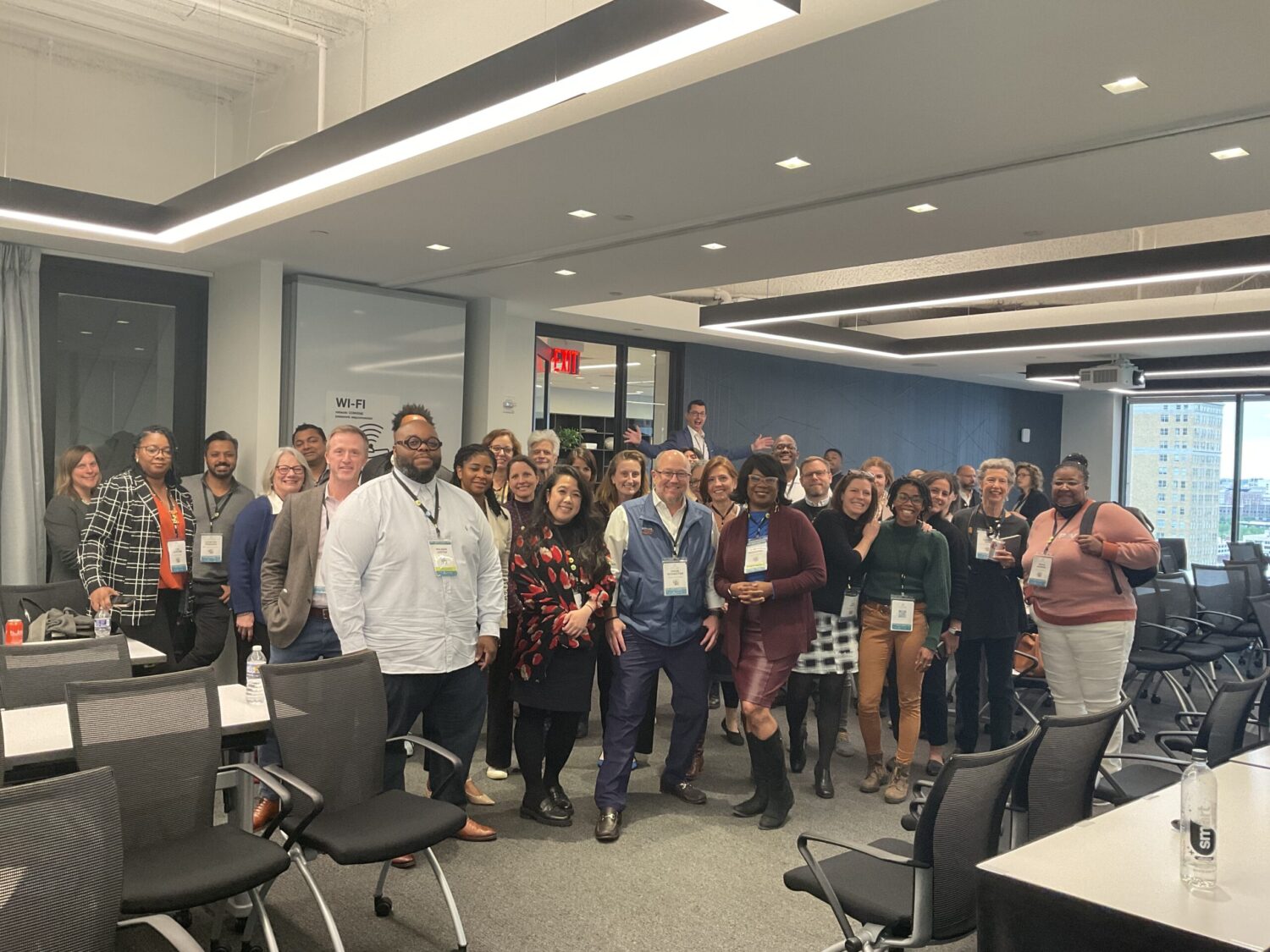ImpactAlpha, May 4 — ImpactPHL’s Total Impact Summit gathered Agents of Impact in Philadelphia for the second consecutive year, following a three-year pandemic hiatus.
“Philadelphia’s been trying to make progress for decades with the existing tools that we have,” says ImpactPHL’s John Moore. “Part of the reason why I’m so excited about ImpactPHL’s vision for the city is because we now have impact investing in our toolbox.”
Moore, who has been an angel investor in social entrepreneurs in the City of Brotherly Love since 2010, says the shift is already underway. Last year’s “summer of funds” saw dozens of impact-focused funds launching out of Philadelphia.
Most recently, a collective of mainly Black developers teamed up with 17 Asset Management to raise the Philadelphia Real Estate Impact and Equity Fund. The fund’s $100 million target size is meant to be big enough to bring in institutional capital that Black developers have had trouble attracting individually.
Urgency was the word that echoed around the room. There’s an urgent need to build quality jobs for marginalized people, there’s an urgent need for catalytic capital to get impactful projects off the ground, there’s an urgent need to get capital into the hands of fund managers and businesses of color that are doing meaningful work in their communities.
“By 2053, the median wealth of Black and Latino people in America is going to reach zero, and be completely flat by 2083,” says Wilson Lester of Partners in Equity in Greensboro, N.C., which is helping Black business owners purchase the commercial buildings in which they operate (see Lester on Agents of Impact Call No. 50). “We don’t have a lot of time to do what it is we’re doing and we don’t know the total impact COVID has had on that timeline.”
Creating good jobs
REDF Impact Investing Fund brought out Opportunity Construction, one of its portfolio businesses. The Black-owned road construction enterprise provides training and high-paying jobs to formerly-incarcerated people in traditionally underserved communities in Steelton, Pa.
“Some CDFIs wouldn’t invest in a group like Opportunity Construction, or a lot of our other borrowers because they may not appear on paper to be ‘capital ready or credit worthy,’” says REDF’s Emilie Linick of REDF, a community-development financial institution that provides loans and technical assistance to social enterprises that are creating good local jobs. REDF works with those enterprises to help them become investment-ready.
“If a group can graduate and pay off our loan and go get a loan from a larger CDFI, a bank or credit union, we’ve done our job,” says Linick.
Community-focused catalytic capital
Norris Square is a “deeply impoverished” neighborhood in Philadelphia currently undergoing gentrification, says Sarah Martinez-Helfman of Samuel S. Fels Fund, a $40 million private independent foundation focused on marginalized communities in Philadelphia.
Norris Square Community Alliance, led by Michelle Carrera, is looking to acquire 200 affordable housing properties to ensure that residents making less than 30% of the area’s median income can stay in the community.
“That’s truly affordable housing,” says Martinez-Heelfman. “Most affordable housing in this country focuses on the 60-80% AMI range. That’s middle-class housing.”
The Fels Fund provided a catalytic grant to Norris Square to bridge the gap for private capital needed to launch the project. Norris Square has acquired 58 properties to date.
“We need very flexible, patient and long-term capital,” Martinez-Heelfman says. “The capital we invested in Norris Square, we may not see that money back. But it is 100% aligned with mission and values.”











